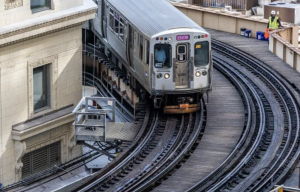School officials discuss pension reform penalties
Local school districts have been forced to pay penalties imposed as part of a 2005 pension reform law intended to limit raises for retiring educators.
But area superintendents say there is more than meets the eye.
A May 22 feature in the Chicago Tribune was accompanied by an online database listing hundreds of Illinois school districts and the amount paid in penalties since the pension reform law went into effect 10 years ago.
The law is aimed at reining in large salary spikes that boost retiree benefits and pension costs statewide by imposing cash penalties on districts that gave raises larger than six percent to outgoing educators.
Districts going over the six percent could face extra payments to the Teachers Retirement System.
Raises come into play when TRS calculates how much an educator will get in retirement pay. Typically, the educator’s four highest consecutive salaries in the last 10 years are used in the formula.
A penalty can kick in if any one of those salaries increased by more than six percent from one year to the next in the same district.
According to this database, the Waterloo school district was penalized $15,806.43 for 11 outgoing educators; Columbia was penalized $14,935.88 for nine educators; Valmeyer was penalized $11,368.37 for two educators and Dupo was penalized $30,529.34 for one educator.
When approached by the Republic-Times, local school superintendents said that while the penalties may look bad to taxpayers on the surface, there are other factors to consider as part of the budgeting process.
“This law was intended to stop the ‘golden parachutes,'” Valmeyer superintendent Eric Frankford said. “Then it became more of a catch-all that sometimes includes the normal course of business.”
In many instances, local superintendents agreed that even with the penalties imposed as part of these personnel decisions, their school districts actually saved money.
In Valmeyer’s case, a retiring principal from several years ago triggered a penalty because her principal’s contract was set up during the first year based on two months as a teacher and 10 months as principal due to timing.
The other penalty came as a result of a former curriculum coordinator in Valmeyer who received a percent of administrative costs as a stipend for serving as a grant writer, Frankford said. The procedure for dealing with the pay scale in those situations has since changed.
Once school officials gained a clearer understanding of the 2005 law, districts were able to avoid the penalties.
“There are numerous factors that can cause such a penalty and many schools encountered penalties due to technicalities with TRS that districts had little control over,” Waterloo superintendent Brian Charron said, adding he wasn’t aware of the specific individuals for which the district was penalized since they occurred prior to his time in office.
“I have to assume these were additional technicalities or legitimate increases due to added coaching or other extra-duty stipends,” Charron added. “The district would not have deliberately assigned a raise or otherwise knowingly triggered a penalty, unless the decision itself was determined to be in the best interest of the district.”
Columbia school superintendent Gina Segobiano said her district was required to pay a penalty due to the early retirement of Ed Settles a few years ago.
“He left Columbia after two years as superintendent and then moved to Jerseyville,” Segobiano explained. “He was not originally planning on retiring, so the six percent increase was not on anyone’s radar.”
In Dupo, superintendent Stephen Smith said a penalty was imposed on the district in the matter of one educator who was paid above six percent as an incentive to retire. Since that person carried an annual salary near $90,000 and the new teacher hired as a replacement was paid $35,000, even with the penalty it resulted in a net savings.
“Historically, we’ve been careful not to go above the six percent,” Smith said. “In most cases for all of these districts, there has to be a financial interest for the district to do it (take a penalty). The way finances are, they won’t do it unless they know they are going to gain something on the back end.”






